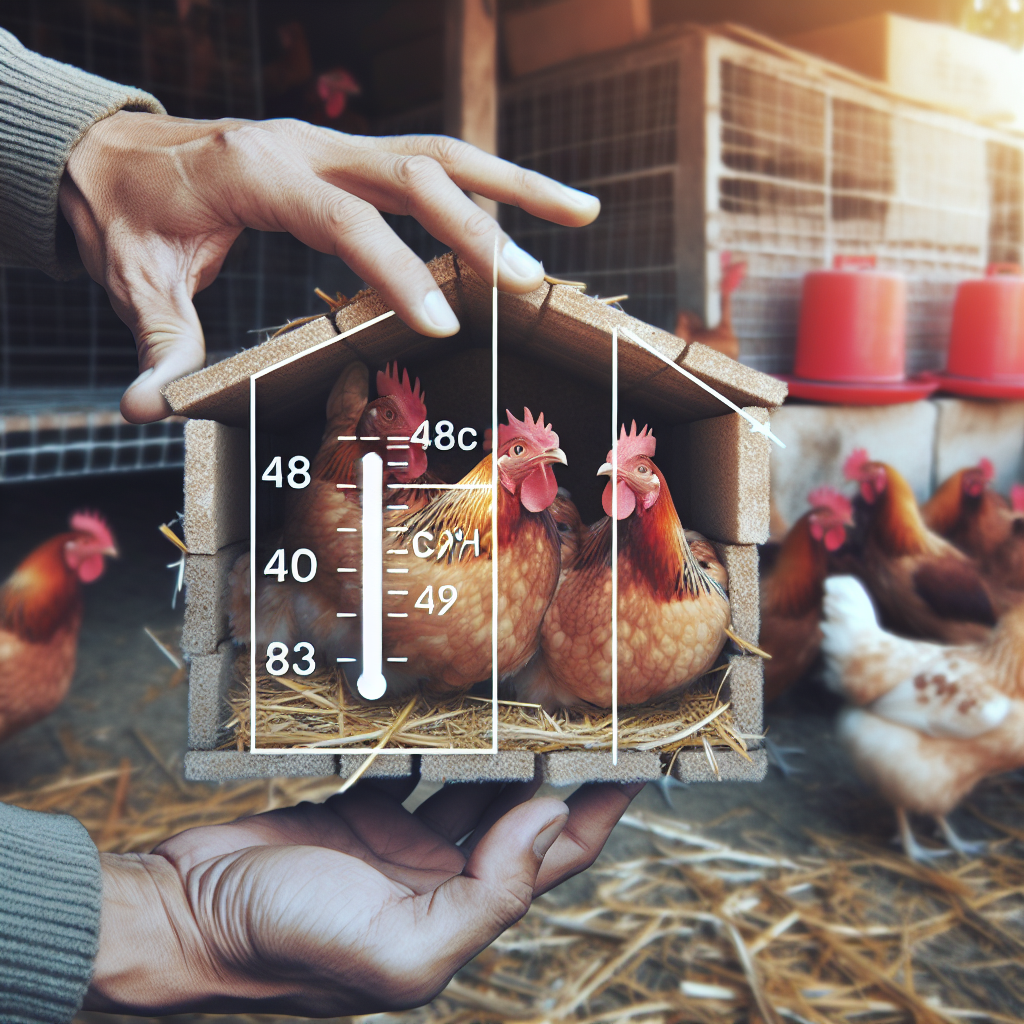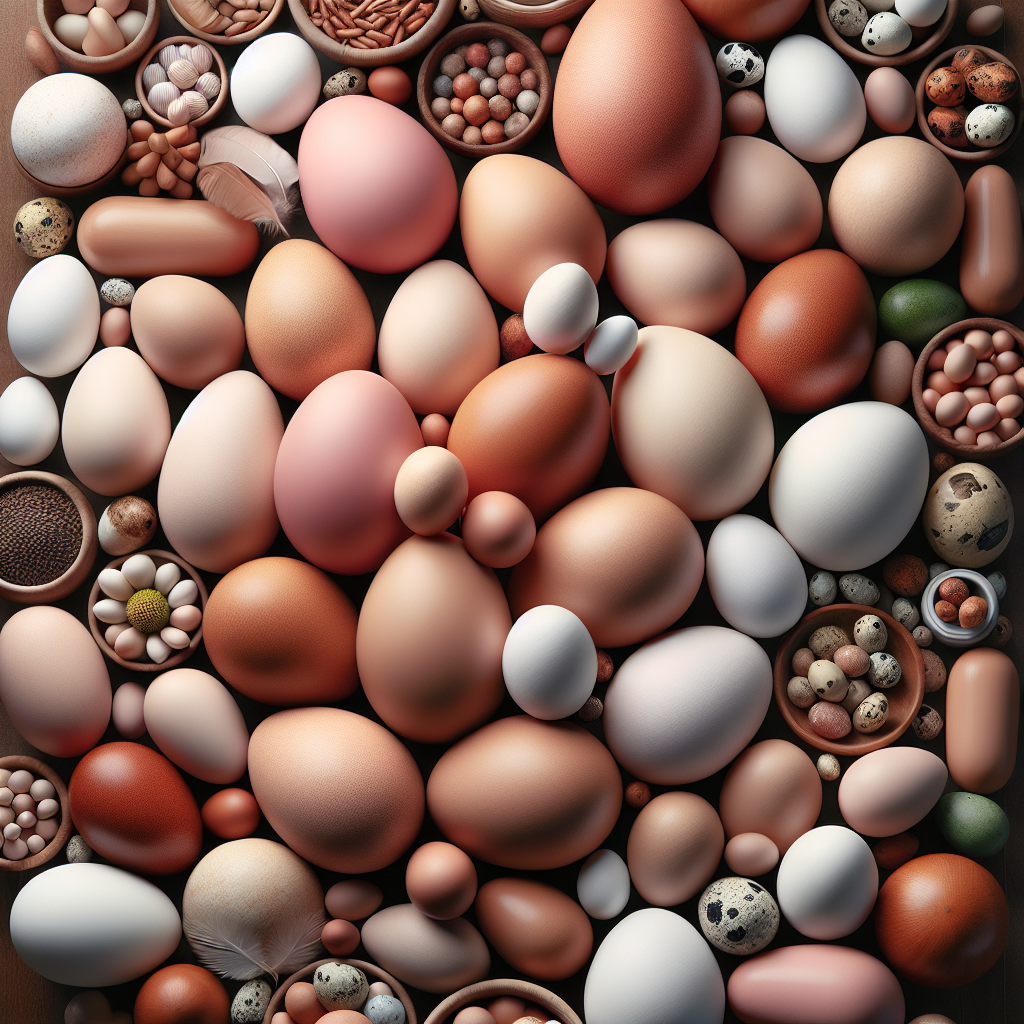Have you ever wondered how long chickens typically live, and how their care needs change as they age? In this article, we will explore the average lifespan of chickens and delve into the various ways in which their care differs as they grow older. Whether you are a beginner chicken owner or a seasoned enthusiast, understanding these differences can help ensure your feathered friends live happy and healthy lives at every stage. So, let’s embark on this delightful journey of chicken care and discover how to provide the best possible care for your beloved birds.
Factors Affecting Lifespan
Keeping chickens happy and healthy is paramount to ensuring a long lifespan. Several factors can affect the lifespan of chickens, including breeds, genetics, housing conditions, diet and nutrition, and medical care.
Breeds
Different chicken breeds have varying lifespans. While some breeds are specifically bred for meat production and have shorter lifespans, others are bred for egg-laying or have dual-purpose capabilities, which can result in longer lifespans. It’s essential to consider the breed when determining the average lifespan of chickens.
Genetics
Genetics also play a crucial role in the lifespan of chickens. Good breeding practices can result in healthier chickens with fewer genetic vulnerabilities. It’s essential to choose reputable breeders and ensure the chickens you introduce into your flock have a robust genetic background.
Housing Conditions
Providing a suitable living environment is vital for the longevity of chickens. An appropriate coop design and maintenance, along with adequate ventilation, lighting, and cleanliness, can have a significant impact on their overall health and lifespan. A clean and predator-proof coop is essential in ensuring their safety and well-being.
Diet and Nutrition
A balanced diet is crucial for chickens at every stage of life. Providing them with a nutritious and well-rounded diet can help prevent malnutrition and certain health issues. A diet rich in protein, vitamins, and minerals can contribute to better overall health, improved immune function, and a longer lifespan.
Medical Care
Regular veterinary care and proactive health monitoring are essential for maintaining the health and well-being of your chickens. Veterinary check-ups, vaccinations, and routine health checks can help identify and mitigate potential health issues before they become severe. By providing proper medical care, you can significantly extend the lifespan of your chickens.
Average Lifespan of Chicken Breeds
Understanding the average lifespan of different chicken breeds can help you plan and prepare for their care appropriately. Here is an overview of the average lifespans of popular chicken breeds:
Chickens for Meat
Chickens bred for meat, such as broilers, typically have a shorter lifespan of around 5 to 8 weeks. These breeds have been selectively bred for rapid growth and large muscle development. Due to their accelerated growth rate, they are more prone to health issues and have a shorter lifespan.
Egg-Laying Breeds
Egg-laying breeds, such as Leghorns and Rhode Island Reds, are known for their prolific egg production. These breeds usually have a lifespan ranging from 5 to 10 years. With proper care and nutrition, egg-laying hens can continue to produce eggs consistently for several years before their egg production declines.
Dual-Purpose Breeds
Dual-purpose breeds, such as Plymouth Rocks and Sussex chickens, are versatile breeds that are suitable for both meat production and egg-laying. These breeds generally have a longer lifespan ranging from 8 to 12 years. They are known for their hardiness and ability to adapt to various climates, making them popular choices for backyard flocks.
Heritage Breeds
Heritage breeds, such as Orpingtons and Australorps, are traditional and historical chicken breeds that have been preserved over generations. These breeds often have the longest lifespan, typically ranging from 10 to 15 years. Their robust genetic backgrounds and natural traits contribute to their longevity.
Care for Young Chickens
Proper care from an early age sets the foundation for a healthy and long life for your chickens. When caring for young chickens, also known as chicks, consider the following factors:
Brooder Setup
A brooder is a designated area where young chickens are housed during their first few weeks of life. It should be a warm, secure, and well-ventilated space. Provide suitable bedding, such as wood shavings or straw, to ensure comfort and cleanliness.
Temperature and Heat Source
Maintaining the appropriate temperature is crucial for the well-being of chicks. A temperature of around 95°F (35°C) is recommended for the first week, gradually decreasing by 5°F (2.8°C) each week until reaching the ambient temperature. Use a heat lamp or a heat plate to provide a consistent heat source.
Feeding Schedule
Young chicks require a balanced and age-appropriate diet. Start with a high-quality chick starter feed and offer water from the first day. Follow the feeding schedule recommended by your feed supplier, gradually transitioning to a grower feed as they mature.
Water Requirements
Chicks need constant access to clean, fresh water. Use shallow and easily accessible waterers that prevent drowning. Regularly monitor water levels and cleanliness to ensure their hydration and health.
Vaccinations and Health Monitoring
Consult with a veterinarian to determine the necessary vaccinations and health monitoring protocols for your chicks. Common vaccinations include Marek’s disease, Newcastle disease, and infectious bronchitis. Regularly observe their behavior, appetite, and stool consistency to detect any signs of illness early on.
Care for Adult Chickens
As your chickens mature into adulthood, their care requirements may change. Here are some essential aspects to consider when caring for adult chickens:
Coop Design and Maintenance
Ensure that the chicken coop provides sufficient space for your adult chickens. Adequate ventilation, natural light, and cleanliness are essential for their well-being. Regularly clean the coop, remove droppings, and inspect for any signs of damage or pest infestation.
Feeding and Nutrition
A well-balanced diet is still crucial for adult chickens. Provide a mixture of commercial feeds, grains, fresh vegetables, and kitchen scraps to satisfy their nutritional needs. Adjust the feed quantities based on their activity level and monitor for any signs of overeating or obesity.
Watering Systems
Provide a constant source of clean water for your adult chickens. Install reliable watering systems, such as nipple drinkers or water fountains, to ensure easy access and minimize contamination. Regularly check and clean the waterers to maintain water quality.
Outside Access and Fencing
Allowing chickens access to an outdoor area promotes natural behaviors, such as foraging and dust bathing. However, ensure the outdoor space is securely fenced to protect them from predators. Regularly inspect the fencing for any potential breaches.
Routine Health Checks
Perform routine health checks on your adult chickens to monitor their overall well-being. Observe their behavior, inspect their feathers and skin, and check for any signs of illness or injury. Early detection and prompt intervention can prevent the spread of diseases and prolong their lifespan.
Care for Aging Chickens
Aging chickens require specific care and attention to ensure their comfort and quality of life. Consider the following factors when caring for aging chickens:
Evaluating Health and Quality of Life
Regularly assess the health and quality of life of your aging chickens. Observe their mobility, appetite, and interaction with others. If an older chicken’s health declines to the point where their quality of life is significantly compromised, it may be necessary to consider euthanasia.
Special Dietary Needs
As chickens age, their nutritional needs may change. Provide a balanced diet that caters to their specific requirements, such as lower protein levels and supplements for joint health. Consult with a veterinarian to develop an appropriate feeding plan.
Mobility Assistance
Aging chickens may experience mobility issues, such as arthritis or joint problems. Provide low perches or easy-access roosts to minimize strain on their joints. Consider providing ramps or step-up platforms to assist them in accessing feeders and waterers.
Predator Protection
Older chickens may be more vulnerable to predator attacks due to decreased mobility or slower reaction times. Ensure the coop and outdoor area have adequate protection against predators. Regularly inspect fences, repair any damages, and reinforce security measures.
Reducing Stress
Stress can significantly impact the health and lifespan of aging chickens. Minimize changes or disturbances in their environment, avoid overcrowding, provide adequate personal space, and maintain a consistent routine. Reduced stress levels can contribute to their overall well-being.
Signs of Aging in Chickens
As chickens age, they may exhibit certain signs indicating the natural aging process. Be aware of the following common signs of aging in chickens:
Decreased Physical Activity
Older chickens may become less active and spend more time resting or standing in one place. A decrease in their usual level of physical activity is normal as they age.
Reduced Egg Production
Egg-laying hens may experience a decline in egg production as they get older. While some breeds may lay eggs consistently for several years, others may have a shorter egg-laying lifespan.
Changes in Feather Quality
Aging chickens may have changes in their feather quality. Feathers can become dull or brittle, and there may be signs of thinning or patchiness. Molting may also occur more frequently as chickens age.
Loss of Appetite
Some older chickens may experience a decrease in appetite or show a preference for softer foods. It’s important to provide a varied and easily digestible diet to ensure their nutritional needs are met.
Deterioration of Eyesight
As chickens age, their eyesight may deteriorate. They may have difficulty seeing clearly or accurately gauging distances. Take this into consideration when arranging perches, feeders, and waterers.
Providing a Comfortable Environment
Creating a comfortable environment for your chickens can significantly enhance their quality of life, regardless of their age. Consider the following factors when providing a comfortable environment:
Comfortable Roosting Spaces
Ensure that roosting spaces are comfortable and provide adequate support for your chickens. Optimal roosting bar size is around 2 inches (5 cm) wide, allowing them to grip and rest comfortably.
Bedding and Litter Maintenance
Maintain clean bedding and litter in the coop to provide a comfortable and hygienic living space. Regularly remove soiled bedding and replace it with clean material to prevent bacterial growth and odors.
Protection from Extreme Weather
Chickens are sensitive to extreme weather conditions. Provide adequate shelter and protection from excessive heat, cold, rain, and wind. Insulate the coop during colder months and ensure proper ventilation in hot weather.
Avoiding Overcrowding
Overcrowding can lead to stress and health issues in chickens. Provide sufficient space for your chickens to move around comfortably, both inside the coop and in the outdoor area. Avoid overcrowding to promote a peaceful and stress-free environment.
Promoting Natural Behaviors
Allowing chickens to express their natural behaviors improves their mental and physical well-being. Provide opportunities for scratching, dust bathing, and foraging by incorporating natural elements, such as vegetation or dedicated foraging areas, into their environment.
Health Issues in Aging Chickens
Aging chickens may become more susceptible to certain health issues. Monitoring their health closely and being aware of potential issues can help you provide necessary care. Some common health issues in aging chickens include:
Arthritis and Joint Problems
Arthritis and joint problems can affect older chickens, leading to mobility issues and discomfort. Providing appropriate perches, ramps, and ensuring a low-stress environment can help alleviate these problems.
Respiratory Issues
As chickens age, their respiratory systems may become more vulnerable to infections and diseases. Ensure proper ventilation, maintain a clean coop, and promptly address any signs of respiratory distress.
Egg Binding
Egg binding occurs when an egg becomes trapped inside a hen, often due to hormonal imbalances or physical abnormalities. Older hens may have a higher risk of developing egg binding. Prompt veterinary care is necessary to prevent complications.
Digestive Problems
Age-related changes in digestion can result in digestive problems for older chickens. Providing a balanced and easily digestible diet, along with appropriate supplements, can help support their digestive health.
Cancer and Tumors
Cancer and tumors can occur in aging chickens, leading to serious health issues. Regularly monitor your chickens for any abnormal growths, changes in behavior, or signs of discomfort. Consult with a veterinarian if you suspect any health concerns.
Euthanasia and End-of-Life Care
As chickens reach the end of their lifespan or experience significant health decline, it’s essential to consider their well-being and provide appropriate care. Here are some aspects to consider when it comes to end-of-life care:
When to Consider Euthanasia
Euthanasia may be necessary when a chicken’s quality of life is severely compromised due to age-related illnesses or injuries. When they show signs of pain, distress, or an inability to perform normal daily activities, it may be time to consider this humane option.
Humane Euthanasia Methods
Consult with a veterinarian for guidance on humane euthanasia methods. Approved methods may include cervical dislocation, overdose of an anesthetic agent, or intravenous injections performed by a professional.
End-of-Life Comfort Measures
Prioritize the comfort and well-being of your aging chickens during their final stages. Provide a quiet and peaceful area, ensure they have access to food and water, and keep them surrounded by familiar flock members if possible.
Grief and Emotional Support
Caring for aging chickens and making end-of-life decisions can be emotionally challenging. Seek support from fellow chicken keepers, online communities, or even professional counselors who can provide guidance and understanding during this difficult time.
Conclusion
Understanding the average lifespan of chickens and providing appropriate care throughout their lives is crucial for their overall well-being and longevity. Factors such as breed, genetics, housing conditions, diet and nutrition, and medical care all contribute to their lifespan. By providing a comfortable environment, monitoring their health regularly, and adapting their care as they age, you can ensure that your chickens live happy and healthy lives. Remember, every chicken is unique, and attentive care tailored to their individual needs is key to fostering a long and fulfilling lifespan.




